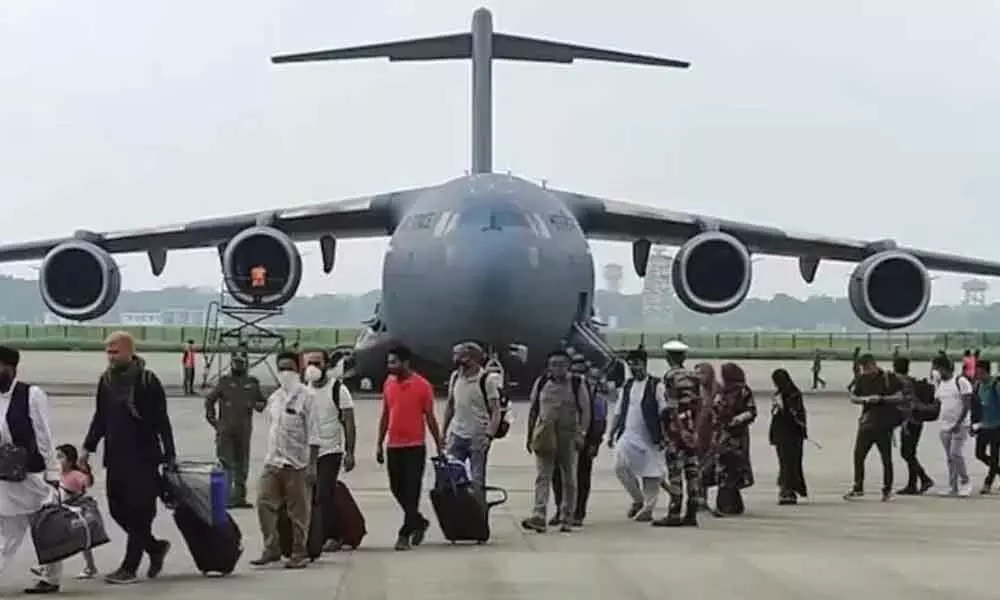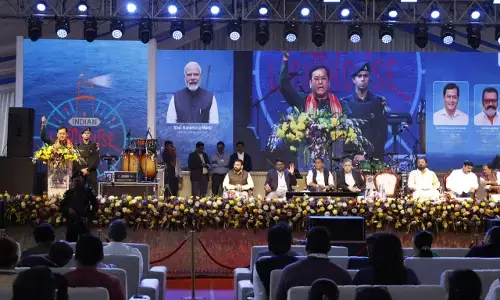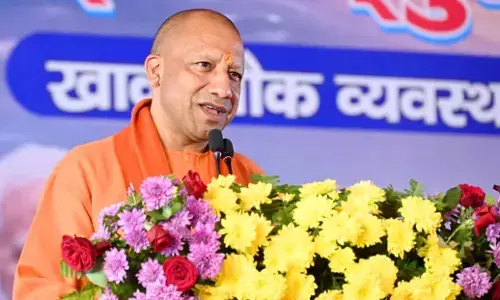Is India the new home to Afghan evacuees?

Is India the new home to Afghan evacuees
At a time when the whole world was preparing to fight the new wave of Coronavirus, the Afghanistan takeover by Taliban has left it startled and shifted the focus. Many countries are engaged in airlifting their nationals and are mulling the post-shift relationship with the new regime.
At a time when the whole world was preparing to fight the new wave of Coronavirus, the Afghanistan takeover by Taliban has left it startled and shifted the focus. Many countries are engaged in airlifting their nationals and are mulling the post-shift relationship with the new regime. Amid the latest reports of twin blasts at Kabul airport, around 450 Indians and Afghans, including Sikhs, Hindus and Afghan nationals, have been evacuated to India so far and more are in waiting. Now, when USA, UK and other countries have made their commitment to Afghanistan clear, India is yet to disclose its stance though it has indirectly discussed the ongoing chaos with the powers-that-be there.
Recently in a meeting, External Affairs Minister Jaishankar has said that the Government wants to bring back the Indian nationals and refugees from Afghanistan. He avoided comment on the Taliban issue, saying that it intends to follow 'wait and watch policy.' Earlier, the Indian government announced that it would issue emergency e-visas to Afghan nationals who want to come to the country in view of the Taliban takeover in Afghanistan. Approximately, 100 Afghan Sikhs and Hindus have been brought to India and as the latest reports suggest, 140 are still stranded in Afghanistan.
In this backdrop, it becomes important to think of the fate of these asylum seekers in India. Also to be noted is the fact that these refugees are the first batch after the Citizenship Amendment Act (CAA) 2019 came into force and thus their presence here assumes significance. The CAA amended the 1955 provisions by providing a pathway to Indian citizenship for persecuted religious minorities from Afghanistan, Bangladesh and Pakistan who are Hindus and Sikhs and arrived in India before the end of December 2014. However, as it mentions 'before Dec 2014' and not 2021, hence the status of these evacuees is to be interpreted.
Returnee status in India
The Indian migrants in Afghanistan fleeing back here will be amalgamated in India population and enjoy the same rights as Indian citizens. Whereas the Afghan Hindus and Sikhs are around 250 and the question remains whether they will also be absorbed as citizens or treated as asylum-seekers. On 17th August, in his early comments post-Afghan developments, Prime Minister Narendra Modi observed "India must not only protect our citizens, but we must also provide refuge to those Sikh and Hindu minorities who want to come to India, and we must also provide all possible help to our Afghan brothers and sisters who are looking towards India for assistance."
The Indian returnees will be rehabilitated first. The government has to provide them with accommodation, medicare and counseling facilities, besides jobs or self-employment opportunities. This will be an extra burden on the Government of India which is stretching its resources to fight the Covid pandemic. The Government should also chalk out the path of granting citizenship to Afghan refugees (non-minorities) if it wishes. From the comments of the PM, it is clear that India is willing to accept the Afghans and so one has to see what new provisions it will bring to the Citizenship Act.
With this, India also needs to strengthen its borders by deploying more special forces, especially in Kashmir, as there is now apprehension of enhanced terrorist activity. The threat is very much credible as Pakistan and China are working on joint strategy for global recognition of Taliban and we cannot fully trust the assurances and comments of Taliban on the Kashmir issue.
On the India-Taliban subject, India is silent today but it seems likely that its stand will get clear only after the first initiative by Taliban regime to reach out to it. Apparently, India has not yet sensed any threat from Taliban or is assured by the promises made by Taliban leaders. From the past experience when Taliban ruled Afghanistan during 1996-2001, India had strained ties with Afghanistan. But particularly now, when the future of Afghanistan lies seemingly in the hands of Taliban only, then India is expected to consider diplomatic relations and mull strategies of partnership with that country.
In case the Afghan nationals evacuated to India find place and assistance in the country and awarded citizenship by amending the CAA 2019, then the Indian government will have to answer the discriminatory treatment meted out to Rohingya refugees in the country so far.














